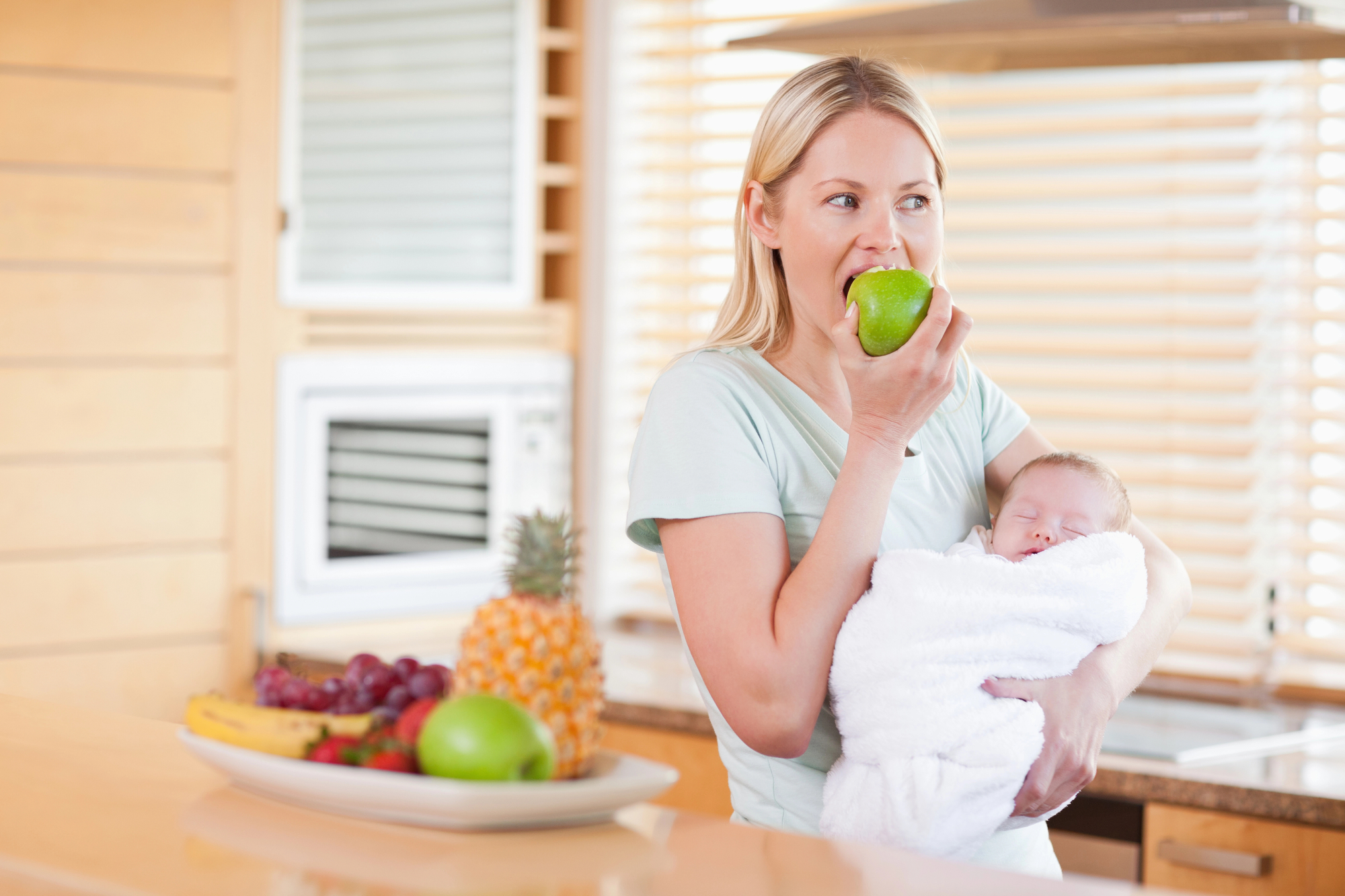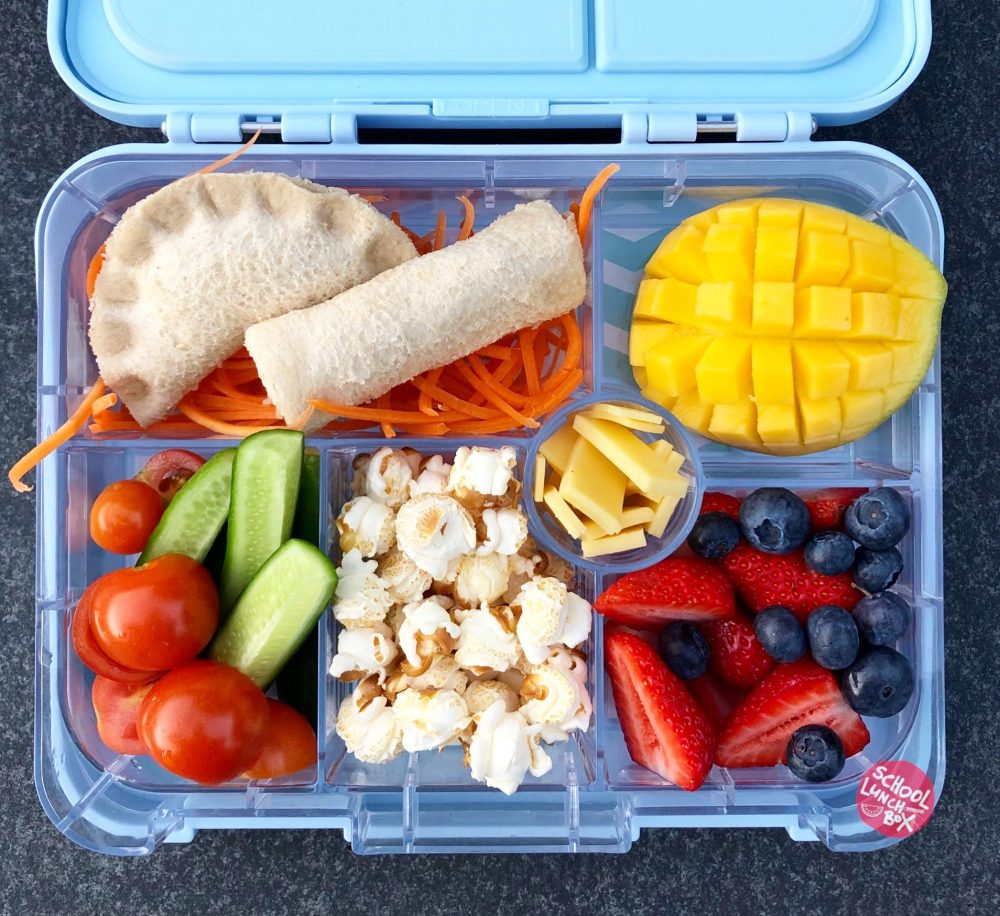When your pregnancy is over and you’re basking in the joy (and lack of sleep!) of your beautiful newborn, nutrition is likely the last thing on your mind. It’s often something that’s only thought of during pregnancy, around foods that are safe – or not safe – for you to eat.
However, your body is recovering from the intensity of labour while also working overtime to supply milk for your baby, and nutrition can play an important role to support and help you flourish during this time.
As such, we’ve enlisted the help of Dr Courtney Thompson, a PhD-qualified Registered Nutritionist from NPR Consulting to provide us with some insight into how nutrition can help.
The postpartum (or postnatal) period begins after childbirth and is typically considered to last for 6 weeks following delivery but can last up to 12 months after childbirth.
Childbirth and lactation are demanding on a woman’s body, so nutrient requirements increase during this time. There is also evidence linking the post-partum period and mood, so nourishing your body may help you enjoy the post-partum period even more. There are key nutrients that you will need to include more of (two of which you may recall from pregnancy) to help your body during this time. These nutrients sit across four key food groups:
-
Vegetables
Vegetables, particularly dark green and yellow varieties like broccoli, carrots, pumpkin and corn are high in folate, vitamin A and C. These nutrients are important for your baby’s growth, development, contain antioxidants and are protective against immune system deficiencies.
An easy way to increase your vegetable intake? Think carrot and celery sticks with hummus, pasta salads and quiches or frittatas loaded with vegetables, or tray bake dinners, where you can cook your vegetables and protein all in the one meal!
-
Grains
Wholegrains are a good source of energy, dietary fibre, folate, iodine and vitamin B6 which help to support a healthy gut and bowel movements, promote recovery, healing and maintain your baby’s thyroid function, mental and physical development.
Wholegrain snack and meal options include wholegrain breakfast cereals and oats, popcorn, salad sandwiches or wraps on wholegrain bread, English muffins, brown rice and wholemeal pasta.
-
Protein, including eggs and fish
Protein-rich foods like meat, chicken, fish are high in iron and vitamin B12 which helps to support your body with recovery and healing, build healthy tissues and cells and your baby’s growth and development.
Fish and eggs are high in omega 3s, iodine and choline, which supports your baby’s memory, brain and nervous system development as well as providing ant-inflammatory properties and healthy thyroid function for mum. As during pregnancy though, you may want to limit your consumption of high mercury fish, such as catfish, flake, swordfish and marlin.
Examples of ways to increase your protein intake include snacking on nuts and seeds, boiled eggs and aiming to include a protein source at each of your main meals.
If you are following a vegetarian or vegan diet, you will need to increase your intake of B12 fortified cereals and fortified plant-based alternative milks. You may want to consult with a dietitian or other healthcare professional around supplementation too.
-
Dairy
Dairy foods are high in calcium which helps to support your baby’s bone strength and skeletal development. If your diet does not contain enough calcium, your body will use calcium from your bones to meet your increased needs. To prevent this, make sure to include milk, cheese and yoghurt in your diet and incorporate vitamin D where possible, as this helps your body to absorb and use calcium. While most vitamin D comes from sunlight, you can get substantial amounts from foods like oily fish, eggs and mushrooms which are exposed to the sun (think putting your mushrooms gills-up in the sun for 30 minutes before eating!)
Dairy-rich snacks include yoghurt with berries, nuts and seeds, smoothies, cheese and crackers.
If you are vegetarian or vegan, be sure to opt for plant-based alternatives fortified with calcium and incorporate foods like tofu, nuts and seeds.
-
BONUS: Keep up your water intake
Staying hydrated is crucial during this period, as it helps with your energy, concentration, satiation and avoids dehydration – as there is a high volume of water lost through milk production. Keep a glass of water or drink bottle handy when breastfeeding so you can sip as you go. If you’re looking for something a bit different, flavoured caffeine-free teas are a great option, or try adding frozen berries, cucumber, lemon or mint to your water.
What to limit
To promote healing and prevent discomfort after birth, you may want to avoid, or limit caffeine and alcohol intake and spicy or gas-producing foods. While cruciferous vegetables and legumes fall into this category, it may help to introduce them slowly if you don’t currently eat them frequently.
So, how does this all link in to sleep?
The relationship between nutrition and sleep is bi-directional, in that a lack of sleep may increase hunger and cravings, or that being awake for longer means there is more time in the day to eat – but in general, those who sleep less generally consume more calories and have lower-quality diets. While this is difficult to control during the post-partum period with your newborn there are some foods you can eat more and less of to help improve your sleep!
Consumption of low-fibre, high saturated fat and high sugar foods (think sweets, muffins, lollies, fried foods and takeaway) are associated with less deep sleep and more frequent waking, while consumption of foods high in protein, B vitamins, vitamin A and C are generally associated with improved sleep.
So, in summary, following our food group recommendations above are both beneficial for mum and bubs nutrition and sleep!
Dr Courtney Thompson is a Registered Nutritionist with a PhD in public health nutrition. She helps busy women and mums plan and cook healthy, delicious family meals, stress-free through her company, NPR Consulting. You can find free recipe ebooks, meal planners and nutrition advice on her Instagram








